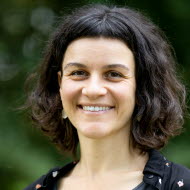Developing an integrative research agenda on child maltreatment
This workshop series aims to create a forum where researchers from different disciplines can exchange perspectives, synthesize current knowledge, and identify key directions for future research on social functioning as a mechanism linking child maltreatment to health.
We will address important gaps, including the limited integration across disciplines, underuse of novel methods, and a lack of knowledge about how vulnerability and protective factors interact.
Anchored at Mid Sweden University, Karolinska Institutet and Stockholm University, the series will bring together an international, transdisciplinary group of researchers from fields such as psychology, neuroscience, biology, genetics, and public health. Through six structured workshops—five hybrid and one in-person—we will foster dialogue, strengthen collaborations, and lay the groundwork for advancing understanding in this field.
As organizers, we also hope to use the insights from these workshops to inform the development of a larger research program that we plan to bring forward in future grant applications. By working together across disciplines and perspectives, we hope to build momentum for innovative approaches to research and practice—urgently needed given the high personal and societal costs of child maltreatment.
Content, Date and Place of Workshops
Workshop 1
Oct 27th, 2025, 14.00–18.00 CET. Hybrid meeting, Karolinska Institutet (Stockholm)
Kick-off & Sustainable Development Goals:
Part 1: Welcome, round of introductions, overview and aims of the workshop series.
Part 2: Sustainable development and health: The sustainable development goals (SDGs) in the 2030 Agenda are all interlinked and making progress towards sustainable development is a prerequisite for achieving sustainable health for all. In this workshop we will get information on sustainable development and the SDGs to raise awareness as a basis for the onward workshop series. We will interactively discuss a) how the SDGs relate to health and child maltreatment, b) which SDGs are relevant for our research and c) how we integrate them in our research.
Workshop 2
Nov 26th, 2025, 8.30–12.00 (part 1), 13.00–16.30 (part 2) CET. Hybrid meeting, Karolinska Institutet (Stockholm)
Part one: Introduction to AI-Assisted Systematic Reviews with ASReview
Part two: Subgroup formation for conducting an AI-assisted systematic review and meta-analysis that aims to identify the most prevalent mental and physical health outcomes after child maltreatment, informing the selection of outcome variables for our to-be-planned research and work packages.
Workshop 3
Dec 10th, 2025, 08.30–12.00 – 13.00–16.30 CET. Hybrid meeting, Mid Sweden University (Campus Östersund)
How do major components of social functioning relate to protective and vulnerability factors for adverse health effects of child trauma and how can we foster resilience to violence in children and adolescents through individual, social and societal actions?
We will discuss and define how to measure longitudinally social functioning and its effects on health, as well as vulnerability/protective factors. We will then develop a visual model illustrating the associations between child trauma, adverse health effects, risk/vulnerability factors, and the role of social functioning.
Additionally, we will introduce empirically validated pathways to building individual, social and societal resilience in order to break the cycle of violence. To this end, we will introduce schools and families as key settings for fostering resilience against violence towards children and adolescents.
Our approach is based on a modern understanding of resilience as the capacity of a system, rather than just the individual, to adapt successfully to disturbances that threaten its function or development. We will discuss methodological approaches for measuring and connecting the various factors.
Monique Pfaltz
Wassilis Kassis
Céline Favre
Dilan Aksoy
Workshop 4
Jan 9th, 2026, 08.30–12.00 – 13.00–16.30 CET. Hybrid meeting, Karolinska Institutet (Stockholm)
How can register data be used to assess genetic and environmental resilience and vulnerability factors for mental and physical health after child maltreatment? We will define variables and models for studying vulnerability factors in registries and biobanks.
Workshop 5
Jan 27th, 2026, 08.30–12.00 – 13.00–16.30 CET. Hybrid meeting, Mid Sweden University (Campus Östersund)
We will discuss inter-individual variability in how people respond to different types of stressors, including immune challenges. We will discuss the biological pathways that contribute to vulnerability and resilience, with a focus on genetic and physiological mechanisms. A visual model on biological pathways mediating vulnerability to stress will be developed.
Workshop 6
Feb 26th–27th, 2026, 08.30-12.00 – 13.00–16.30 CET. In person meeting, Karolinska Institutet (Stockholm)
Based on all previous workshops, we will agree on a research agenda by defining the most pressing research questions and methods to be used to address them. The workshop will include the definition of work packages, next steps and responsibilities for the grant writing process.
Monique Pfaltz
Fredrik Åhs
Julie Lasselin
Format of Workshops
All workshops except for workshop 6 (which is an in-person meeting) will be offered in hybrid format. That is, both in person and online participation will be possible.
Each workshop will be led by one or several researchers (experts in the respective fields). However, all workshops will be highly interactive, and all participants are expected to actively contribute and to prepare prior to the workshops, e.g. by reading materials. More information will be sent out prior to each workshop.
Participation
Participation is by invitation only. Except for workshop 2 – part one, which will be a general introduction to AI-assisted meta-analyses, open to a broader audience. Please use the registration form to register for all workshops.
Organizing Team
Monique Pfaltz (Mid Sweden University); Fredrik Åhs (Mid Sweden University); Julie Lasselin (Stockholm University; Karolinska Institutet)
Contact

